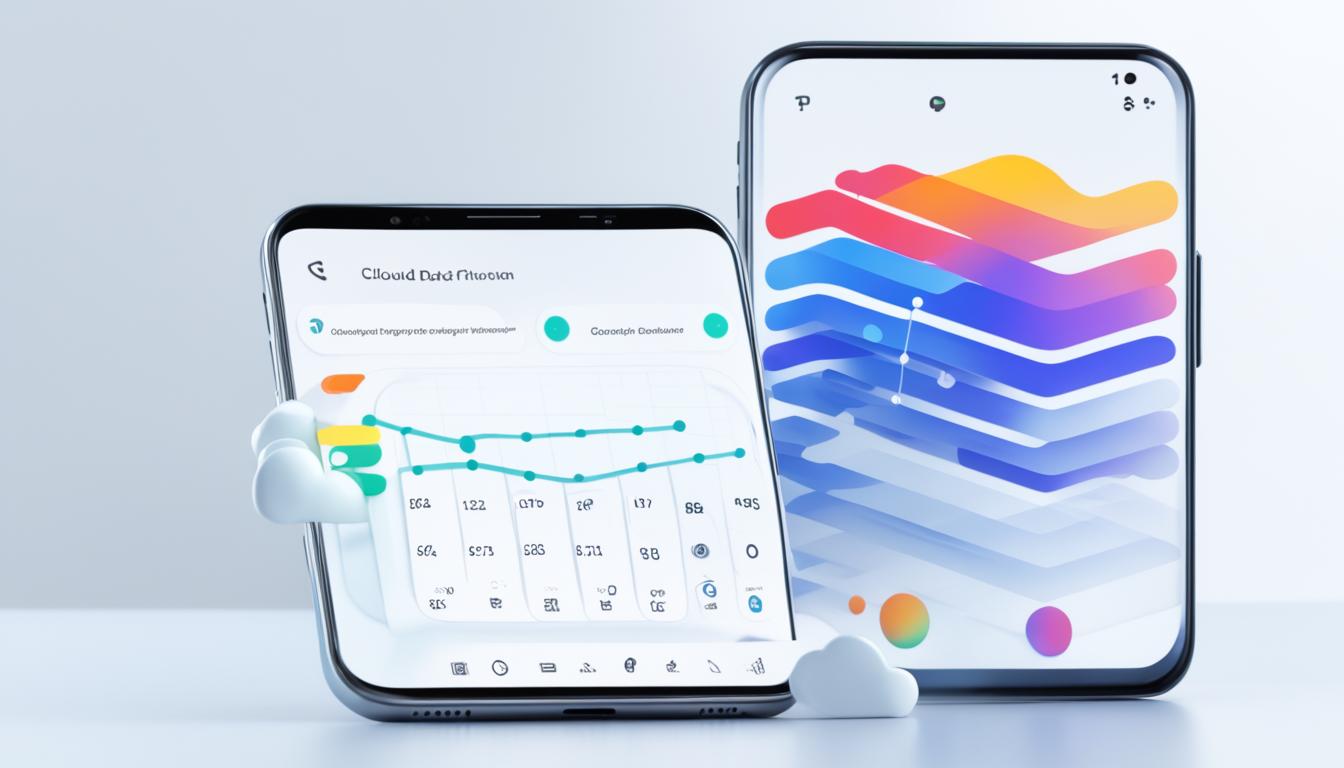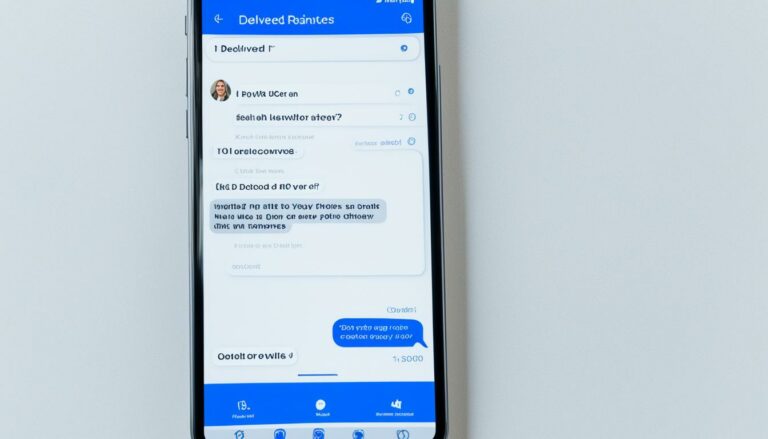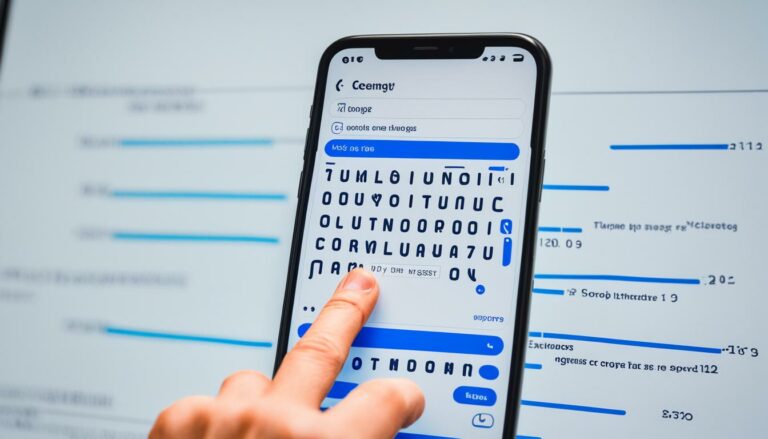Why Gboard Consumes High Data Usage – Explained
Originally posted on March 4, 2024 @ 2:27 am
Did you know that Gboard, the popular keyboard app developed by Google, can consume significant amounts of data on Android and iOS devices? This surprising fact has left many users wondering why Gboard uses so much data.
Gboard’s high data usage can be attributed to various factors, including its extensive features and functionalities. From Smart Reply capability to voice typing, search suggestions, syncing options, and language support, this keyboard app utilizes several functions and services that require a constant data connection for optimal performance.
In this article, we will dive deeper into the reasons behind Gboard’s high data usage and explore strategies to reduce it. Whether you use Gboard regularly or are curious about its data consumption, this guide will provide valuable insights and practical tips to help you manage your data usage effectively.
Key Takeaways:
- Gboard, the keyboard app developed by Google, can consume a significant amount of data on Android and iOS devices.
- The extensive features and functionalities of Gboard contribute to its high data usage.
- Gboard’s Smart Reply capability, voice typing, search suggestions, syncing options, and language support all require a constant data connection.
- Understanding the reasons behind Gboard’s high data usage can help you manage your data consumption more effectively.
- In the next section, we will explore practical tips to reduce Gboard’s data usage and optimize your device’s data usage.
How to Reduce Gboard’s Data Usage
If you’re concerned about excessive data usage by the Gboard app, there are several steps you can take to minimize its impact on your data plan. By implementing these tips, you can enjoy the convenience of Gboard without worrying about exceeding your data limits.
1. Disable Auto-Suggest and Personalized Predictions
Gboard’s predictive text feature, which provides suggestions while you type, can consume a significant amount of data. To reduce data usage, consider disabling auto-suggest and personalized predictions in Gboard’s settings. While this may affect the speed and accuracy of the keyboard, it can significantly reduce data usage.
2. Limit or Disable Syncing Options
Gboard offers syncing options that allow you to sync your personalized settings across devices. However, this synchronization process requires data connectivity and can contribute to high data usage. To reduce Gboard’s data usage, consider limiting or disabling syncing options like theme syncing, dictionary syncing, and personalized data syncing.
3. Minimize Voice Typing
The voice typing feature in Gboard relies on internet connectivity to process and convert your speech into text. As a result, using voice typing extensively can consume substantial amounts of data. To reduce Gboard’s data usage, minimize your reliance on voice typing and utilize traditional typing methods whenever possible.
4. Optimize Google Search Suggestions
Gboard’s search suggestions feature provides real-time suggestions based on your search history and internet activity. While this can be a useful tool, it requires data connectivity and can contribute to high data usage. To reduce data consumption, consider optimizing the Google search suggestions feature by clearing your search history and disabling personalized suggestions.
5. Reduce Keyboard Usage in Low Connectivity Areas
In areas with poor or limited internet connectivity, Gboard may continuously attempt to connect and synchronize data, resulting in increased data usage. To mitigate this, consider reducing your keyboard usage in these areas or temporarily disabling data connections to prevent excessive data usage.
“By implementing these tips, you can minimize Gboard’s data usage and ensure a more efficient and cost-effective experience.”
By following these steps, you can reduce Gboard’s data usage and optimize your overall data consumption. Remember, these adjustments may affect some of Gboard’s functionalities, but the trade-off is a more data-conscious usage experience.
| Tips to Reduce Gboard’s Data Usage | Impact on Gboard’s Functionalities |
|---|---|
| Disable Auto-Suggest and Personalized Predictions | Potentially affects typing speed and accuracy |
| Limit or Disable Syncing Options | May result in the loss of personalized settings across devices |
| Minimize Voice Typing | Reduces reliance on speech-to-text conversion |
| Optimize Google Search Suggestions | May lose personalized suggestions based on search history |
| Reduce Keyboard Usage in Low Connectivity Areas | Limits data consumption in areas with poor internet connectivity |
Conclusion
Gboard, as a feature-rich keyboard app, utilizes various functions and services that contribute to its high data usage. The app’s Smart Reply capability, voice typing, search suggestions, syncing options, and language support are among the features that require data connectivity for optimal performance.
By offering Smart Reply suggestions, Gboard analyzes your messages and predicts the next words or phrases you might use. This feature relies on a continuous data connection to provide you with accurate and relevant suggestions in real time.
Voice typing, another prominent feature of Gboard, enables you to dictate text instead of typing. This convenient option relies on a data connection to process and convert your speech into text accurately.
In addition, Gboard provides search suggestions as you type, allowing you to quickly search for information without leaving the app you’re using. This function requires a data connection to retrieve and display the relevant suggestions.
Furthermore, Gboard offers syncing options that allow you to back up your personalized dictionary, keyboard preferences, and other settings across multiple devices. To ensure seamless synchronization, a data connection is necessary.
Gboard’s extensive language support, which includes predictive text and auto-correction, also contributes to its high data usage. Continuous connection enables the app to access the necessary language databases and provide accurate suggestions and corrections based on context and usage patterns.
In conclusion, the data usage of Gboard is result of its robust feature set that enhances typing and text entry experience. While this may lead to increased data consumption, the app’s functionality and convenience outweigh the potential data usage concerns for most users.







